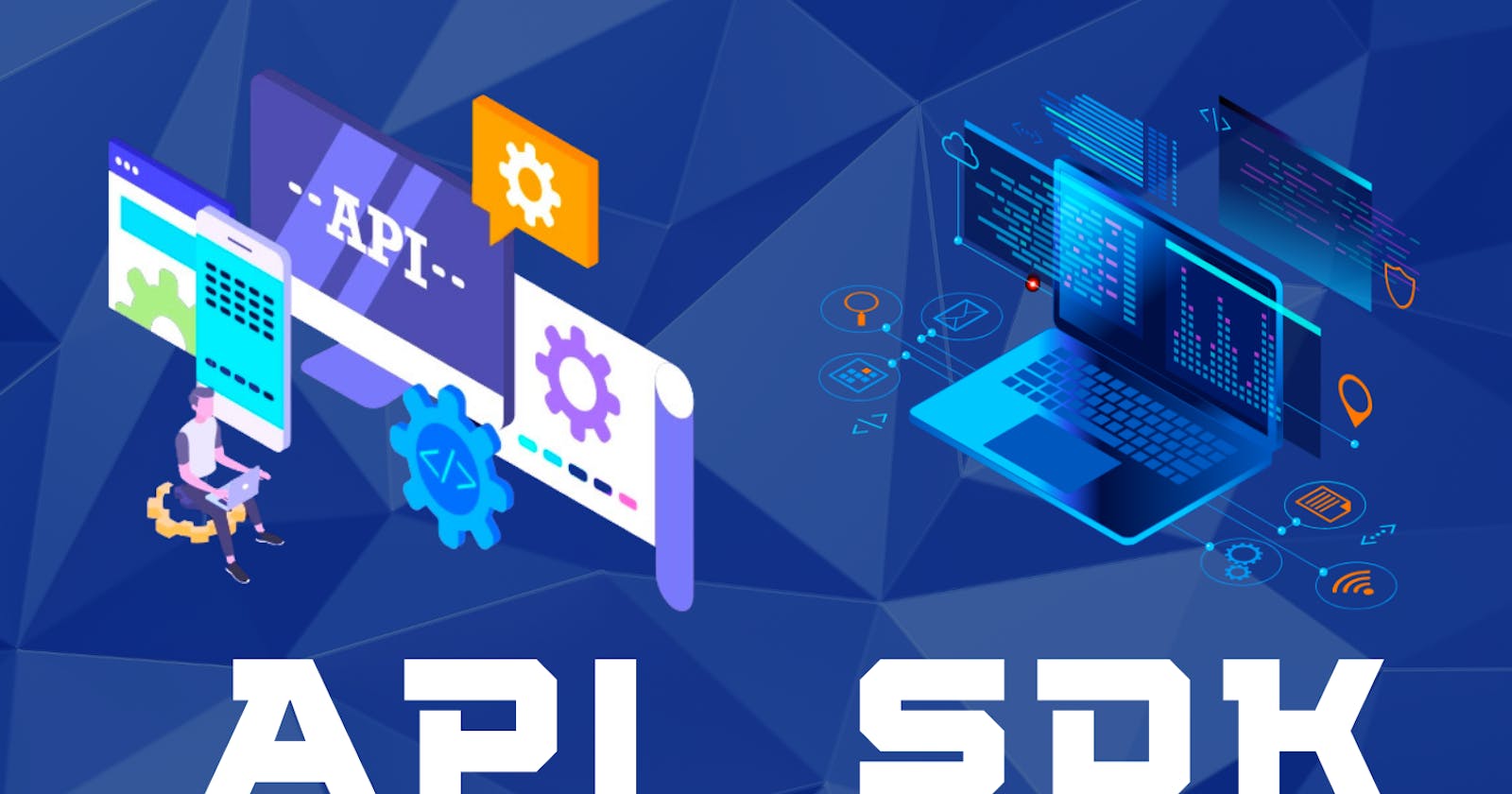Exploring the Differences Between an API and an SDK
In the world of software development, terms like API (Application Programming Interface) and SDK (Software Development Kit) are commonly used. While both API and SDK are tools that enable developers to interact with and integrate external systems or services into their applications, they serve different purposes and offer distinct functionalities. In this article, we'll delve into the differences between an API and an SDK, their uses, and how they contribute to the development process.
API (Application Programming Interface)
An API is a set of rules, protocols, and tools that allow different software applications to communicate and interact with each other. APIs define how various software components should interact, providing a standardized interface for accessing functionality or exchanging data. Key characteristics of APIs include:
Functionality Exposure: APIs expose specific functionalities or services provided by a software system or platform, allowing developers to access and utilize them in their applications.
Protocol Agnostic: APIs can be implemented using different protocols, such as HTTP, REST, SOAP, or GraphQL, depending on the requirements of the application or service.
Language Agnostic: APIs can be accessed and used by developers regardless of the programming language or platform they are working with, as long as they adhere to the defined API specifications.
SDK (Software Development Kit)
An SDK is a collection of tools, libraries, documentation, and sample code that simplifies and accelerates the development of software applications for a specific platform, framework, or service. SDKs provide developers with everything they need to integrate with and build applications on top of a particular system or service. Key characteristics of SDKs include:
Comprehensive Toolset: SDKs include a comprehensive set of tools, libraries, and resources tailored to a specific platform or service, such as mobile platforms (iOS, Android), cloud services (AWS, Google Cloud), or software frameworks (React, Angular).
Platform Integration: SDKs provide developers with pre-built components and APIs that facilitate integration with the underlying platform or service, enabling them to build applications that leverage its capabilities.
Development Acceleration: SDKs streamline the development process by providing developers with ready-to-use components, sample code, and documentation, reducing the time and effort required to build and deploy applications.
Differences Between API and SDK
Scope: APIs define the interface and protocols for accessing specific functionalities or services, while SDKs provide a comprehensive set of tools and resources for developing applications on a particular platform or service.
Purpose: APIs enable communication and interaction between software components, while SDKs accelerate the development process by providing developers with pre-built components and resources for building applications.
Level of Abstraction: APIs provide a high-level interface for accessing functionality or data, while SDKs offer a lower-level abstraction by providing tools and libraries for implementing functionality within applications.
Conclusion
In summary, APIs and SDKs are essential tools that enable developers to interact with and build upon external systems or services. While APIs define the interface and protocols for accessing functionality, SDKs provide developers with a comprehensive set of tools and resources for developing applications on a particular platform or service. Understanding the differences between APIs and SDKs is crucial for selecting the right tools and resources for your development projects and leveraging them effectively.
Are you interested in learning more about APIs, SDKs, or other aspects of software development? Share your thoughts in the comments below and subscribe to our blog newsletter for updates on similar topics and more insightful content!
